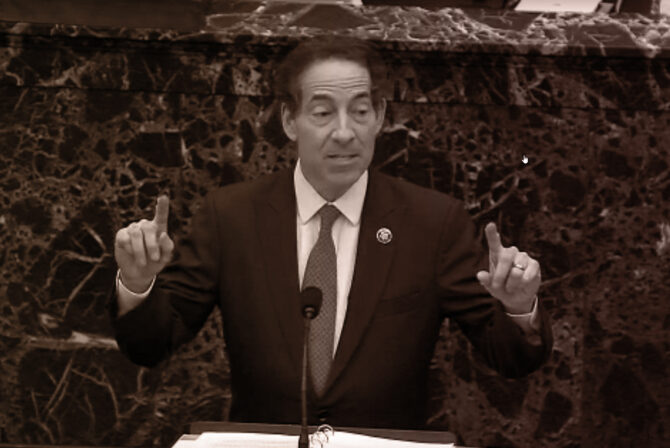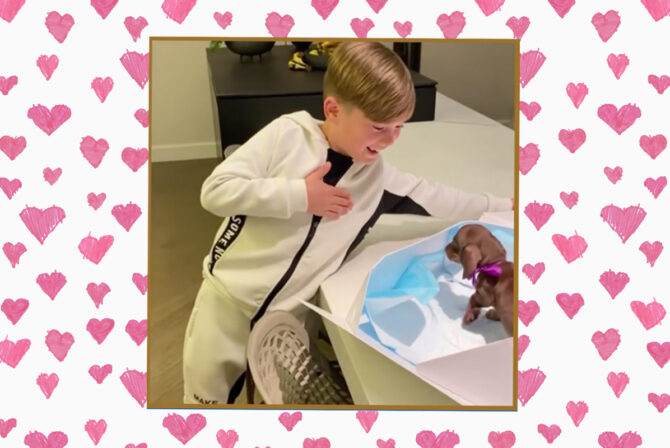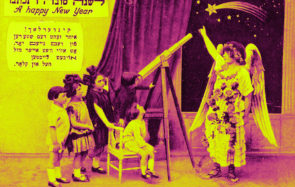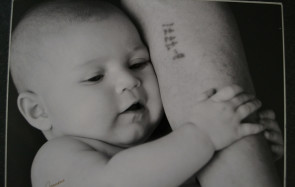It’s a girl!
怎么办?
虽然犹太传统对仪式很清楚欢迎一个男婴,没有集合仪式欢迎一个女婴。在更传统的社区中,宝宝的父亲需要一个aliyah在出生后的第一个Torah阅读日的托拉。为母亲和孩子回忆起幸福的祈祷,宝贝女孩收到她的名字。哈比维或父母常谈这个名字。
In more progressive communities, this naming might occur on a Shabbat during the first few months of the baby’s life, and the mother, and other family members, might receive analiyah也是。
除了命名一个女儿的基础知识之外,许多家庭也在开发新的仪式,就像一个像男婴的割礼一样,象征着一个女儿进入犹太公约。
涉及水的仪式
The most common of these new rituals involve water–either dipping the baby’s feet or other body parts into water, often amikveh,或倒在她的脚上。其他家庭选择完全沉浸在女婴(一个人应该在这样做之前检查儿科医生)。这些仪式有时被称为英国mikveh(仪式浴的契约)或Brit Rehitzah(covenant of washing).
 At a Women’s Rabbinical Alliance Conference in the early 1980s, nine progressive women rabbis developed the idea of a washing ritual for daughters, and they hoped families would adapt it to meet their own needs. Rabbi Bradley Shavit Artson, dean of the Ziegler School of Rabbinic Studies, likes to recommend a feet-washing ritual for reasons both spiritual and practical: the ritual evokes biblical imagery, it is performed on the baby girl’s body, and it can take place even if the baby is crying, he explains.
At a Women’s Rabbinical Alliance Conference in the early 1980s, nine progressive women rabbis developed the idea of a washing ritual for daughters, and they hoped families would adapt it to meet their own needs. Rabbi Bradley Shavit Artson, dean of the Ziegler School of Rabbinic Studies, likes to recommend a feet-washing ritual for reasons both spiritual and practical: the ritual evokes biblical imagery, it is performed on the baby girl’s body, and it can take place even if the baby is crying, he explains.
Water rituals are meaningful and symbolic in a number of ways.
Covenant:
Rain water–and especially rainbows–recall God’s covenant with all of humanity, which followed the biblical story ofNoah and the flood。在《出埃及记》,红海的分裂a powerful water scene which leads the Israelites to freedom and the start of a new, covenantal life. The Meiri, a 13th century French commentator, spells out the water-as-covenant connection, when he writes that the forefathers entered into the covenant with God through circumcision, and the foremothers entered this covenant through immersion in themikveh。
Creation / New Beginnings:
Water holds powerful symbolism as the source of life. It figures prominently in the creation story in Genesis, when it is separated first from the heavens and then from the land to initiate the creation of all living things, and is an appropriate medium for celebrating new life.
Feminine Connection:
圣经的女性与水有特殊的联系。Sarahbrings water to the three guests who visit her andAbrahamin the desert,丽贝卡is found at a well while giving water to both people and animals, andMiriamis associated with wells. Rabbinic Judaism legislates monthly visits to themikvehfor married women, strengthening the women and water connection.
Immersion:

除了坐在一个sukkah,mikvehis the onlymitzvah谁的遵守完全围绕着观察结果。对于婴儿来说,沉浸式模仿他们出现的子宫的安全和保护环境。
Welcoming:
In the Bible, Abraham washes the feet of the three guests who visit him in the desert as a welcoming gesture (Genesis 18:1-4). Parents can wash the feet of their newborn daughter to welcome her to the world and to the Jewish community.
Rituals that Parallel the Wedding Ceremony
有些父母圈出他们的宝贝女儿七次象征性地把她带入公约。这种模仿在婚礼上的传统练习,当新娘在与上帝联合在一起时七次七次。
Anita Diamant,作者新的犹太宝宝书, and a pioneer in innovative Jewish ritual, explains that elements of the Jewish wedding ceremony can be resonant at a welcoming ritual for a daughter, since both life events are about creating a covenant, and both mark a new beginning for a family. She outlines a number of ways to incorporate wedding liturgy and imagery into welcoming ceremonies for daughters, and more ideas can also be found atritualwell.org.和itim.。
For example, families may recite seven blessings to welcome their daughter, parallel to the seven blessings (sheva berakhot) which sanctify a Jewish wedding. These birth ritual blessings often include the blessing over wine and the谢希朱内努祝福(这标志着任何新场合),有时是家庭创造的更多创新祝福。
例如,有些父母修改婚礼祝福“导致新娘和新郎一起欢欣鼓舞的人”,改变语言祝福“导致父母和孩子们一起欢乐的人。”自犹太婚礼仪式中的七个祝福以来,重点创造,他们在欢迎儿童时与创造的权力和重要性特别明显。
此外,在与婚礼主题保持一致中,有些父母们担任女儿的欢迎仪式Huppah.(marriage canopy) that they used at their own wedding.
其他仪式
Parents have developed many other rituals that speak to their own personal connection with Judaism. This includes wrapping the baby in a familytall或触摸A.klaf(神圣的滚动,经常是一个mezuzah滚动)到婴儿的嘴唇。有些家庭使用各种感官来欢迎他们的女儿抚摸着婴儿的嘴唇,并拥有她的气味香料或草药。
Other families anoint their daughter with gentle oil, which evokes the biblical practice of anointing kings and priests. Anointing a baby can represent a blessing for plenty, in keeping with the verse from Ecclesiastes, “Let your clothes always be freshly washed and your head never lacking ointment,” and the famous Psalm 23, “You anoint my head with oil, my drink is abundant.” Anointing is also associated with love in Song of Songs, “Your ointments yield a sweet fragrance, your name is like finest oil, therefore do maidens love you.”
All of these rituals can include the baby’s older siblings, extended family members, and friends, who can help wrap the baby in atall, help wash the baby; circle the baby, or recite a blessing, poem, or reading.








